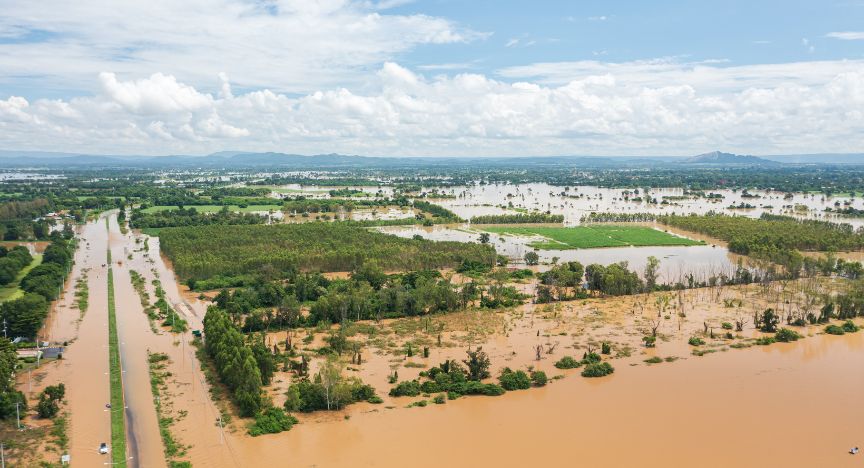
Rain and potential flood conditions across parts of the Central West region in coming weeks have prompted health authorities to issue a timely reminder to affected residents to look after their safety and health.
Central West Hospital and Health Service Executive Director of Medical Services Dr David Walker said all residents should be aware of the increased risk of infection if people came into direct contact with polluted flood waters.
Wound infections, dermatitis, conjunctivitis, and ear, nose and throat infections can occur. All wounds should be immediately cleaned, disinfected, and kept covered.
“You should also consider avoiding flood water and mud if you have broken skin or wounds, especially if you have diabetes or other chronic diseases,’’ Dr Walker said.
“And please see a health professional or your doctor early for severe wounds, especially if the wound is dirty or becomes red, sore, swollen or painful.’’
Floods may also increase the risk of diarrhoeal conditions and bacterial diseases such as leptospirosis and melioidosis.
“We’ve had no recorded cases of melioidosis in the Central West over the past five years,’’ Dr Walker said.
“But we did have single cases of leptospirosis in each of 2024, 2023 and 2021, and four cases in 2020. “So far this year, there have been no cases of leptospirosis recorded and no cases of melioidosis.
“To minimise health risks, do not swim in floodwater and ensure that you and your children keep away from stormwater drains and creeks.
“And avoid wading even in shallow water, as it may be contaminated – if you must enter shallow flood water, wear solid boots or shoes for protection.’’
People cleaning up flood-affected areas should wear sunscreen, insect repellent, boots, gloves and a hat, drink plenty of water and clean and cover wounds.
A mask should be worn if pressure hosing to prevent inhalation of mud and water. Dr Walker said frequent washing of hands was essential.
“Always wash your hands with soap and water before handling food, and after handling pets that may have swum in contaminated water,’’ he said.
“If drinking-quality water is not available and hands look clean, use an alcohol-based hand rub. For hands that are dirty or feel gritty, wash hands, and then apply an alcohol-based hand rub.’’
Dr Walker said heavy rain and flooding also provided ideal breeding grounds for mosquitoes. “Prevention is the key when it comes to mosquito-borne diseases,’’ he said.
“Wearing long, loose, light-coloured clothing and insect repellent, using insect spray, mosquito coils or plug-in devices at home, emptying containers around your yard and repairing insect screens are all ways to prevent getting bitten by mosquitos.’’
Maintaining food safety after an emergency also was important, especially if power had been cut or food had been in contact with contaminated floodwater, Dr Walker said.
"Eating food that has not been refrigerated for some time can lead to gastrointestinal illnesses which can be serious," he said. “These illnesses can cause serious vomiting, diarrhoea or sepsis (blood poisoning)."
After an emergency, it is recommended that you dispose of:
- food that has been in contact with floodwater.
- food that has an unusual odour, colour, or texture.
- refrigerated food that has been left unrefrigerated or above 5°C for more than four hours.
- frozen food after 48 hours (if the freezer is full) or after 24 hours (if the freezer is only half full). If frozen food has partially thawed, the food should be eaten as soon as possible.
- canned food where the can is open, swollen or damaged, or has a missing or damaged label.
- food containers with screw or twist caps, snap-lids, crimped caps (soft drink bottles) and flip tops.
Dr Walker said carbon monoxide poisoning also was a real risk for people near a petrol-powered generator or pump if these were used in an enclosed area.
“Make sure generators and pumps are situated in well-ventilated areas, preferably outside,’’ he said.
For more information on recovery from disasters visit:
http://www.health.qld.gov.au/disaster/storms/default.asp
For information on water-borne bacterial infections such as leptospirosis and melioidosis, visit:
https://www.qld.gov.au/health/condition/infections-and-parasites/bacterial-infections